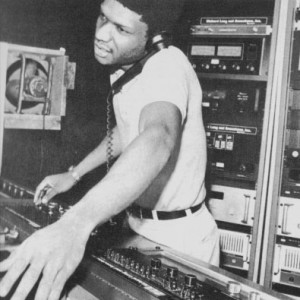A wake-up call to those of you who wonder what that wonderful music you’ve been hearing lately is: disco. It never died.
Disco is everywhere you turn these days, from London’s Horse Meat Disco to DJ Harvey’s famed Sarcastic Disco parties. Crate diggers around the world have known the rewards that can be reaped from old disco records as the basis for hundreds of hip-hop, house and electro records. And one of the names you keep hearing, over and over again in the world of disco, is Larry Levan.

Levan was the DJ at the famed Paradise Garage, arguably the most important dance club to ever exist in New York City. Levan was the man behind the wheels of steel; he was the one who broke records, even if he had to force them onto the dancefloor. People lined up around the block, wanting to get in, hoping they might bump into someone who had a membership to this famed club. Watch any serious documentary or read any book about dance music and dance music culture, and Levan will be mentioned.
Disco was created in dark clubs full of sexual abandon. It was very gay, very black and Latino and very in-your-face. ABBA wasn’t disco; Dinosaur L was disco. Rod Stewart may have asked if he was sexy, but Loose Joints asked if it was all over your face. The Garage was a place where people who were considered to be “undesirable” during the Reagan years – due to their sexuality, their race, the socio-economic status, their serostatus – could find a space where they were not only wanted, but praised. There were other clubs, such as Nicky Siano’s The Gallery and David Mancuso’s almost mythological Loft, but the Garage and Levan were downtown, underground and downright sexy. When the “Disco Sucks” sentiment exploded, Levan and his fans simply went underground.
Levan remixed record upon record, visiting everything from singing strings to dubby disco. His playlists went outside the traditional “disco” genre, including everything from Kraftwerk to Marianne Faithful. Levan wasn’t a perfect DJ; he didn’t always mix well, and because of his drug use, he would even occasionally fall onto his turntables. But his sets weren’t about creating the perfect mix or a populist collection of the big hits.They were about communicating with his audience: this is what I am feeling, and this is where I want to take you. It wasn’t about what was right or wrong within a genre; it was about making everything right and tight. To take you on a trip, letting your feet take you to places you’ve never been.

 Why you can trust Xtra
Why you can trust Xtra


